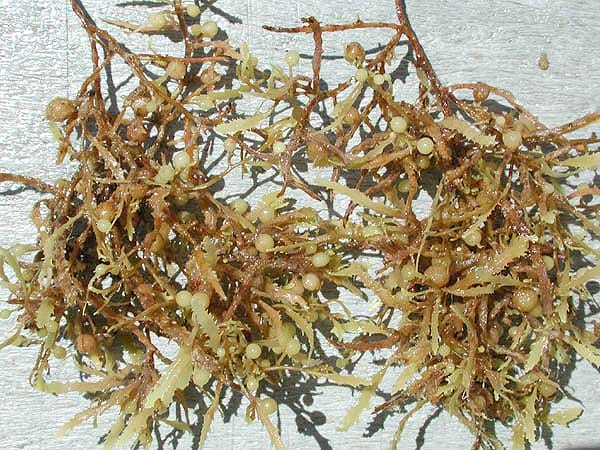Sargassum is not what it used to be, and a new study offers clues as to why.
The amount of the often-stinky seaweed that washes up on beaches has spiked tremendously in the last dozen years, bringing frustration to South Florida beachgoers and causing real economic damage in the Caribbean.
Though it supports marine life in the open ocean, once it decomposes on shore, it can release hydrogen sulfide, a gas that has an odor reminiscent of rotten eggs, and can cause respiratory problems.
The culprit, which didn’t exist until 2011, is the Great Atlantic Sargassum Belt (GASB), a massive, sometimes 5,000-mile-wide bloom of sargassum that has begun to form near the equator each spring and drift our way.
A new study links the new blooms to higher concentrations of nutrients in Atlantic waters near the equator, compared to those farther north in the Sargasso Sea, where the macroalgae historically grew.
Finding higher nutrients in the GASB sargassum “is a smoking gun that the GASB inundations are nutrient-driven,” said Dennis McGillicuddy of Woods Hole, lead author of the study.
Nutrient fuel
The study set out to map sargassum nitrogen and phosphorus concentrations from near the equator north to the Sargasso Sea — both nutrients fuel the blooms.
Researchers sailed north through the GASB in March, April and May of 2021 and took sargassum samples. The idea is that the more nutrients the sargassum contained, the closer they were to nutrient sources that fuel the blooms.

These maps show sargassum abundance in May from 2011 to 2023, with warm colors representing higher density. The sargassum quantity in the Great Atlantic Sargassum Belt (extending from off Africa to the Gulf of Mexico) has increased over time. A recent study showed higher nutrients in areas where the bloom occurs. (Courtesy, University of South Florida)
“We show clearly for the first time that Sargassum in the GASB is enhanced in both nitrogen and phosphorus,” said the study….
The report also notes something called atmospheric deposition, where the nutrients are airborne, and fall from the atmosphere. Lapointe said reactive nitrogen in the atmosphere has increased due to fossil fuel emissions. That nitrate can call and supply more nitrogen to the sargassum.
“Humans have greatly altered the nitrogen cycle on the planet,” Lapointe said. “We’ve more than doubled the amount of reactive nitrogen. It’s likely that we’re seeing the results of that in this GASB.”
An unexpected find
One unexpected finding was that the highest nutrient content was found in the northern Sargasso Sea, far from the GASB. Though there are likely multiple sources, including natural upwellings, the hindcasting in the study also suggests that the Gulf Stream carries nutrients from Florida rivers, and even the Mississippi River, all the way to the northern reaches of the Sargasso Sea, which sits off New Jersey, south of Nova Scotia.

Prior to 2011, the Sargasso Sea was the main source of sargassum in the Atlantic Ocean. (NOAA)
Lapointe said that Florida nutrients could come from Lake Okeechobee discharge, which is high in both nitrogen and phosphorus, and flows out of the St. Lucie Inlet, but also from water flowing out of the Everglades into Florida Bay. That water is filtered for phosphorus, he said, but is still high in nitrogen.
“There’s also all the sewage in the Keys that for decades has been going into the ground water from septic tanks and other sources,” said Lapointe, “and sewage outfalls in Miami-Dade and Broward counties.”
This year’s reduction
This spring, the sargassum levels in the Atlantic set volume records, and it looked like Florida beaches were in for a stinky summer.
But the bloom tapered off — July, August and September levels were below 2022 and 2021. Both Lapointe and McGillicuddy said the reason is an ongoing area of research, but they have different ideas as to possible causes.

Lapointe suspects that the severe droughts in the Amazon region, brought on by this year’s El Niño, could have reduced Amazon River nutrient discharges. McGillicuddy said that the record-breaking water temperatures in the Atlantic this summer could have been just too hot for sargassum to flourish.
In the future, McGillicuddy and others hope to use those nutrient markers to “fingerprint the ultimate sources of these nutrients that are sustaining these seaweed blooms.”
Both say the next step, which would be extremely difficult logistically, would be to get a near simultaneous snapshot of nutrient levels over the entirety of the GASB. That way they could really pinpoint nutrient sources.







